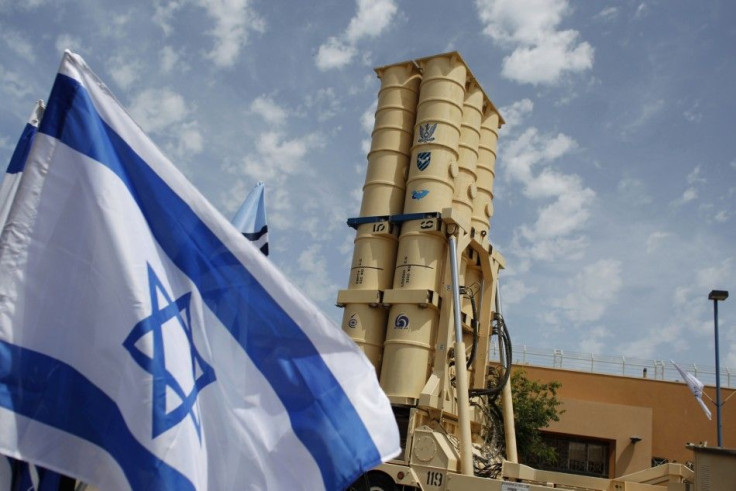Israel to Test Anti-Ballistic Missile Systems

Israel has confirmed that it seeks to test an advanced anti-ballistic missile system, as Prime Minister Benjamin Netanyahu and U.S. President Barack Obama prepare to meet in Washington next week, according to a report Friday in Britain’s Guardian newspaper.
The Guardian said the first test of the new Arrow 3 interceptor system will be conducted “in the near future.”
The testing raises speculation that Israel is indeed planning to launch a military strike on Iran to thwart the Islamic republic’s nuclear program.
Netanyahu and Obama are expected to discuss the Iran situation and what options Israel may have in dealing with the threat, in the event drastic economic sanctions on the country fail to dissuade the Iranians from pursuing atomic weapons,
Itzhak Kaya, chief of the Arrow missile program at Israel Aerospace Industries, told Israeli media that the test would confirm the interceptor missile's effectiveness and would try to establish its high level of reliability.”
Kaya added that Arrow 3 is an improved model of the Arrow system … more capable than ever to deal with future threats.”
The Guardian noted that it is somewhat unusual for the Israeli government to provide advance notice of such a test. Last November, in an unannounced move, Israel tested a long-range ballistic missile.
According to the Haaretz newspaper of Israel, the Jewish wtate is demanding that the United States and other European nations make renewing nuclear talks with Iran conditional on Tehran halting its uranium enrichment program,
Meanwhile, Netanyahu may face a tall order trying to convince U.S. officials that military action is the only option in dealing with Iran. Although Obama has repeatedly asserted that the United States will protect Israel and condemned a nuclearized Iran as a grave threat to global security, many Washington lawmakers, like their counterparts in Europe, want Israel to refrain from taking such bold action.
Israel is apparently upset over mixed messages its ally is delivering with respect to a strike on Iran.
Amos Yadlin, a former Israeli military intelligence chief, wrote in the New York Times: It doesn't help when American officials warn Israel against acting without clarifying what America intends to do once its own red lines are crossed. … What is needed is an ironclad American assurance that if Israel refrains from acting in its own window of opportunity – and all other options have failed to halt Tehran's nuclear quest – Washington will act to prevent a nuclear Iran while it is still within its power to do so.
Even Shimon Peres, the president of Israel (and longtime rival of Netanyahu) told the Times: We need a total and clear commitment that the catastrophe of Iran will not create an impossible situation. … You [the United States] have to be decisive. You have to make a choice.
Aluf Benn, Haaretz’s editor in chief, wrote that Netanyahu’s upcoming parley with Obama will be the most important and fateful trip of his political career.
“Netanyahu would prefer to see the American superpower, with its vast range of military capabilities, pulverize Iran's nuclear project,” Benn wrote. “For his part, Obama would prefer, if an attack must be launched, that the job be done by Israel, while the United States would serve as the ‘responsible adult’ who comes in afterward to make order in the Middle East.”
Benn added: “The recent behavior of Iran -- which has accelerated its nuclear development program despite the imposition of tougher sanctions, the assassination of Iranian scientists, and the threats of war -- only strengthens the credibility of the Israeli message that time is running out and that the window of opportunity for taking action is about to close. Benjamin Netanyahu now returns to Washington from a position of strength: Both the politicians and the media in America seem to be focusing their attention almost exclusively on Iran, while Obama is fighting to be reelected and needs the American Jewish community's support.”
© Copyright IBTimes 2025. All rights reserved.




















